Reading comprehension Normal Life Science Worksheets for Ages 4-7
8 filtered results
-
From - To
Explore our engaging Reading Comprehension Normal Life Science Worksheets designed for children ages 4-7! These worksheets foster early literacy skills while introducing young learners to the fascinating world of life science. Each printable resource is crafted to enhance reading skills through fun, age-appropriate stories and informative content. Kids will develop comprehension skills by answering questions and completing activities that relate to topics like plants, animals, and habitats. Ideal for home or classroom use, these worksheets make learning enjoyable and accessible, empowering children to build a strong foundation in both reading and science. Dive into a world of discovery and education today!
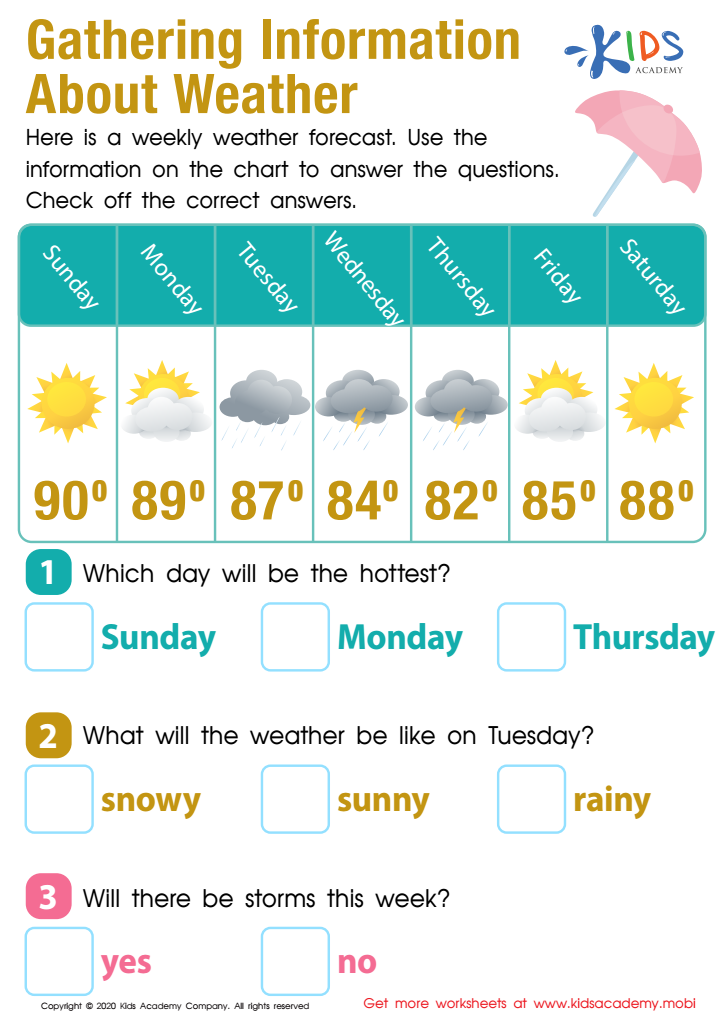

Gathering Information About the Weather Worksheet


Herbivores Printable


Carnivores Worksheet
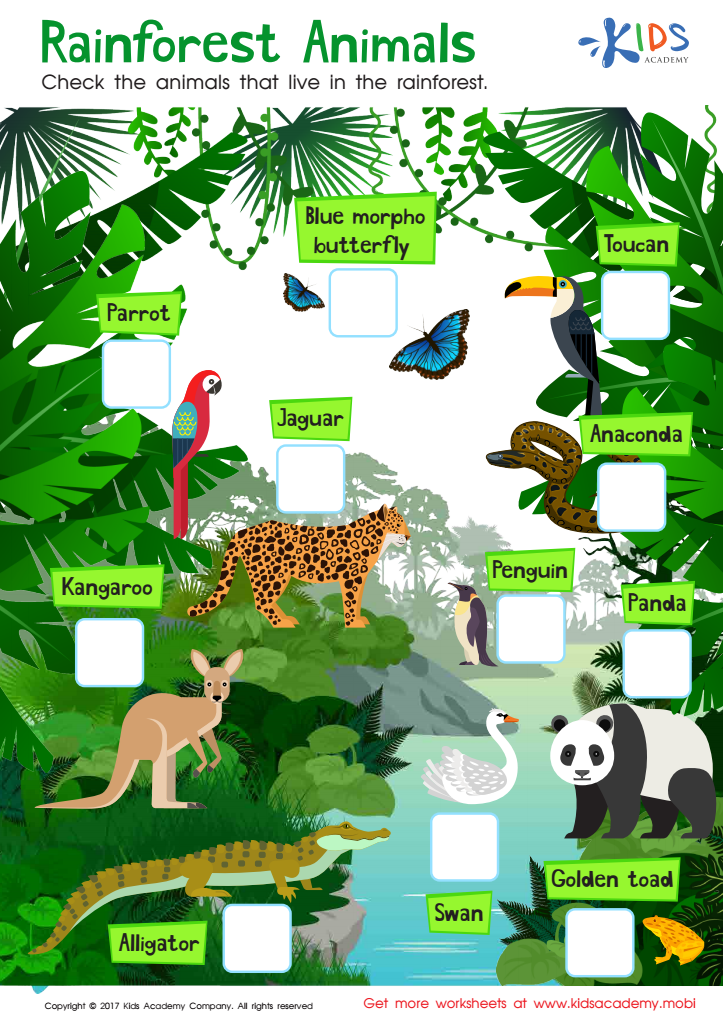

Rainforest Animals Worksheet
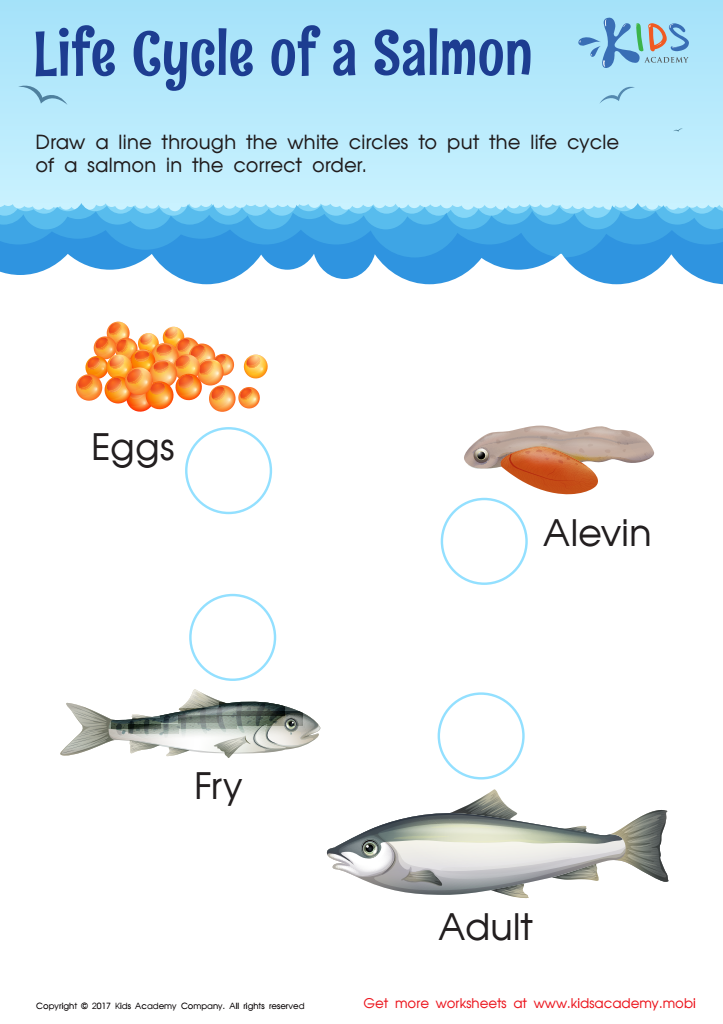

Cycle Of Salmon Worksheet
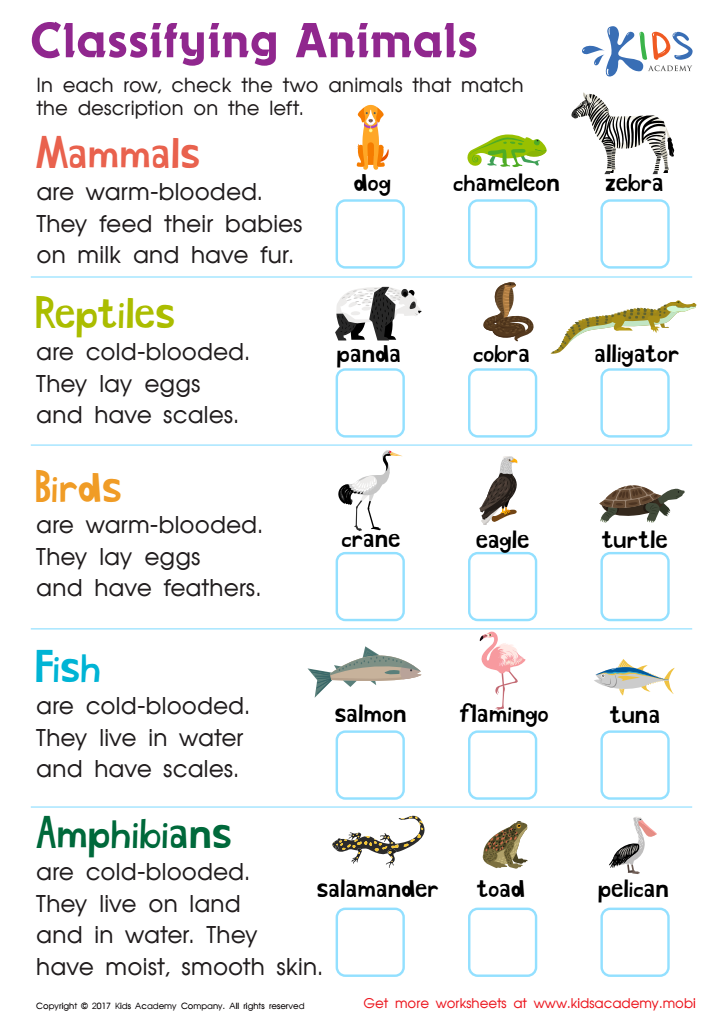

Classifying Animals Worksheet
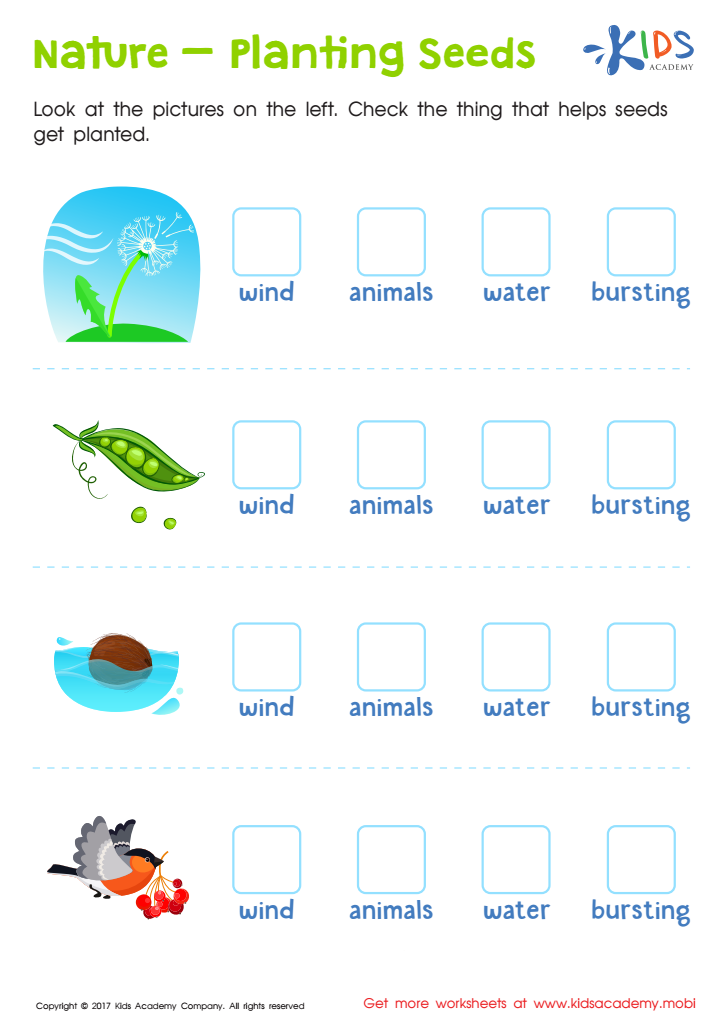

Nature Planting Seeds Worksheet
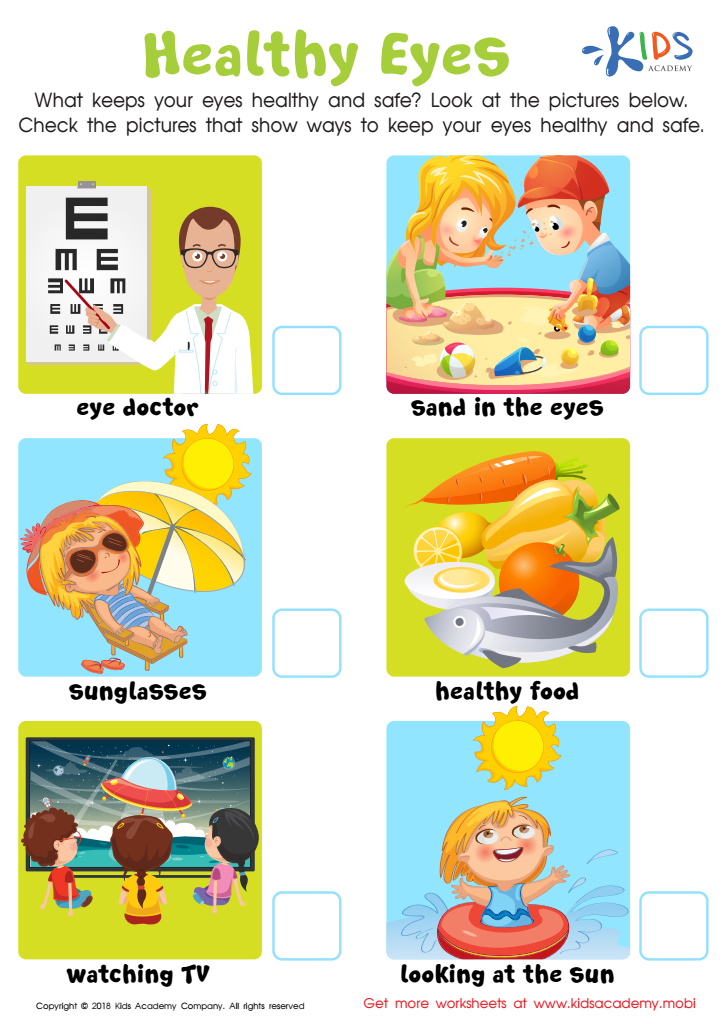

Healthy Eyes Worksheet
Parents and teachers should prioritize reading comprehension in early life science education for children aged 4-7 because it lays the foundation for critical thinking and problem-solving skills. At this age, children are naturally curious about the world around them. By engaging them in life science topics through reading, they not only learn facts about nature and living things but also develop their ability to understand, interpret, and retain information.
Effective reading comprehension promotes vocabulary growth, enhances cognitive skills, and supports literacy development. When children grasp scientific concepts through storytelling or informative texts, they can connect those ideas to real-life experiences, making learning meaningful and relevant. This understanding can foster a lasting interest in science and nature, encouraging future exploration and inquiry.
Moreover, improved comprehension skills enhance children's ability to ask questions and seek answers, nurturing their innate curiosity. Parents and teachers play a vital role in facilitating this learning by choosing appropriate texts, discussing content, and encouraging imaginative thinking. Ultimately, prioritizing reading comprehension in life science not only benefits academic performance but also cultivates informed, inquisitive citizens who appreciate and participate in the world around them.
 Assign to My Students
Assign to My Students
















